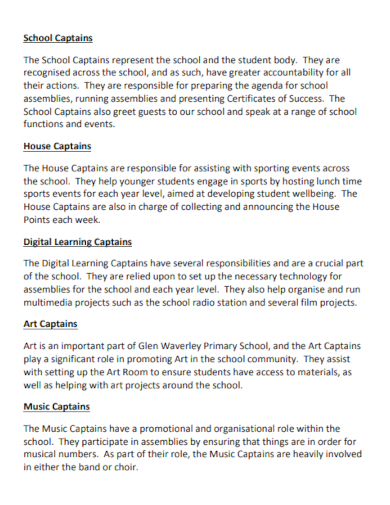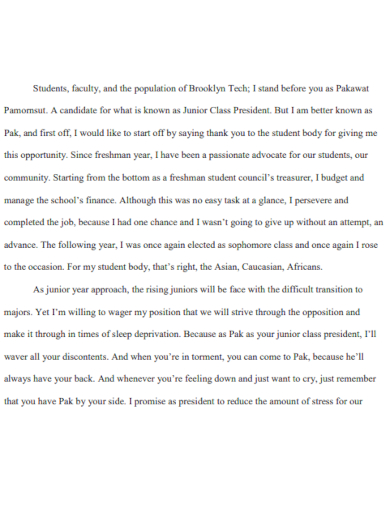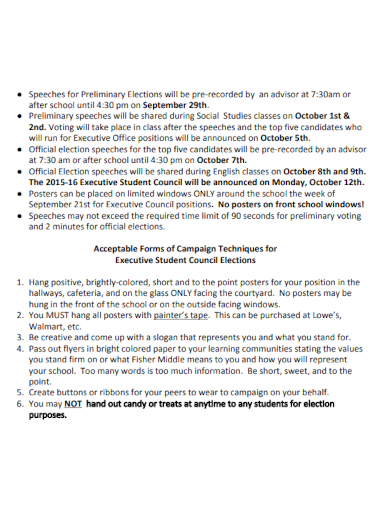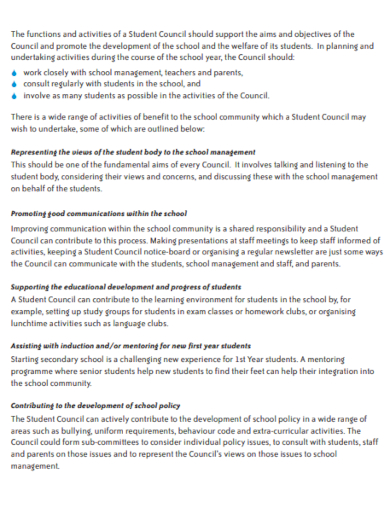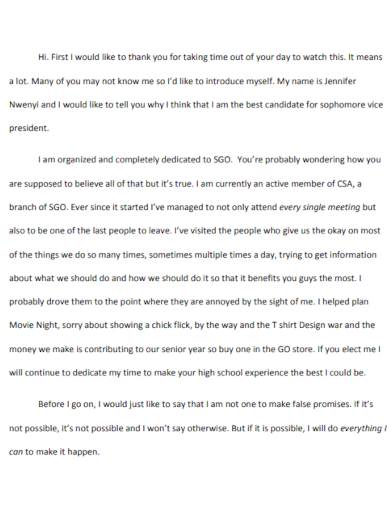19+ Election Speech Examples to Download
Election speeches are more than just a string of words; they are a means to convey a candidate’s message, connect emotionally with the audience, and establish a rapport that resonates beyond the rhetoric. These speeches are delivered in a context where every word carries weight, and the tone and manner of delivery can significantly impact the listeners’ perception of the candidate. While some may dismiss election speeches as cliché-filled performances, they are, in fact, a fundamental aspect of democratic societies, providing candidates the platform to present their objectives, highlight their accomplishments, and express their commitment to addressing societal concerns.
1. Simple President Speech Example
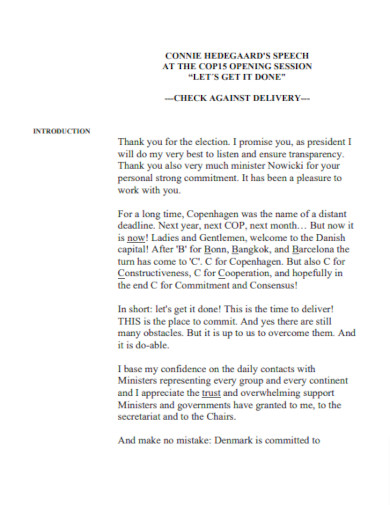
unfccc.int
2. Writing a Campaign Speech Example
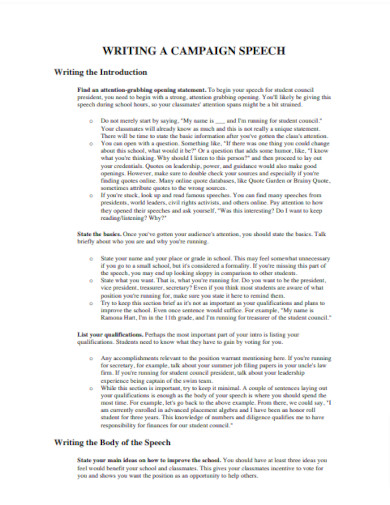
saskailua.org
3. Election Simulation Toolkit Speech Template
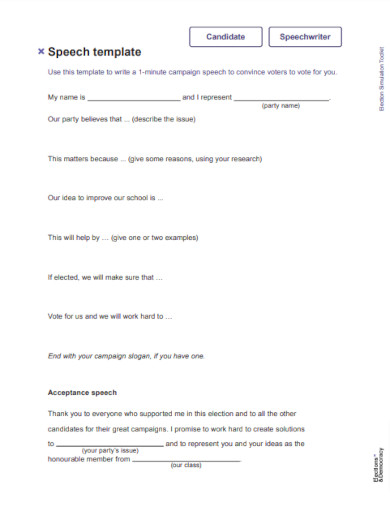
electionsanddemocracy.ca
4. Student Council Secretary Speech Example
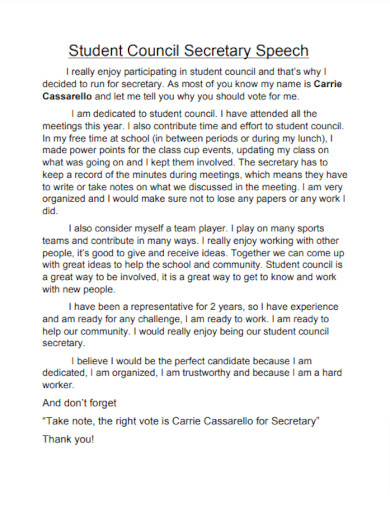
seaford.k12.ny.us
5. Sample Pre Election Speech Example
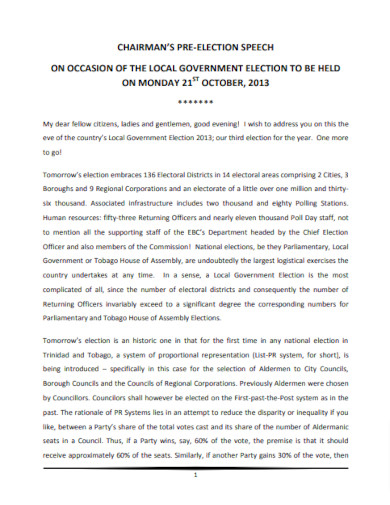
ebctt.com
6. Speech by Vice-Governor Example
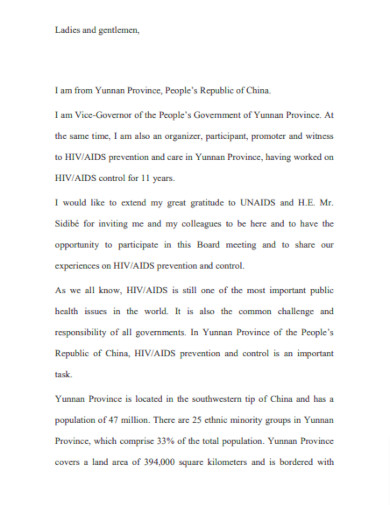
unaids.org
7. Campaign Speeches and Public Acceptance
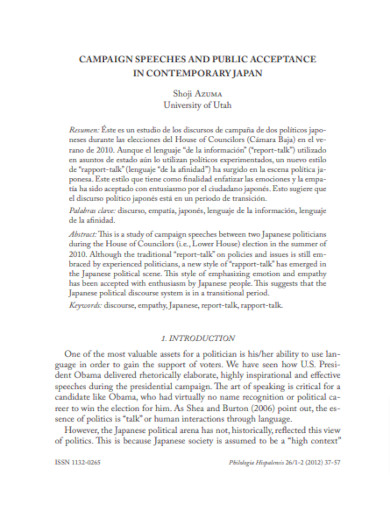
institucional.us.es
8. Basic Post Presidential Speeches Example
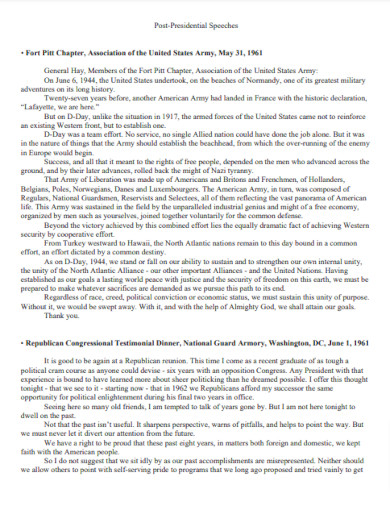
eisenhowerlibrary.gov
9. Techniques and Tips for Effective Interviews and Speeches
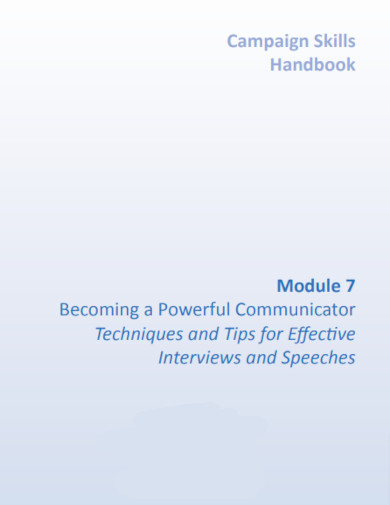
ndi.org
10. Campaign Speech During Elections Example
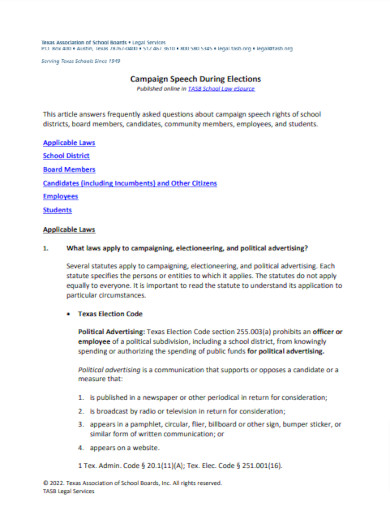
tasb.org
11. Persuasive Strategies in Presidential Election Speeches
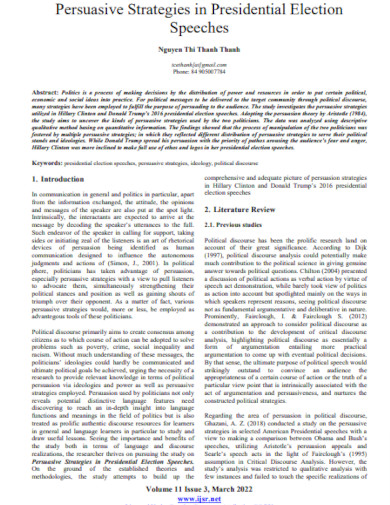
ijsr.net
12. Editable Campaign Speech Example
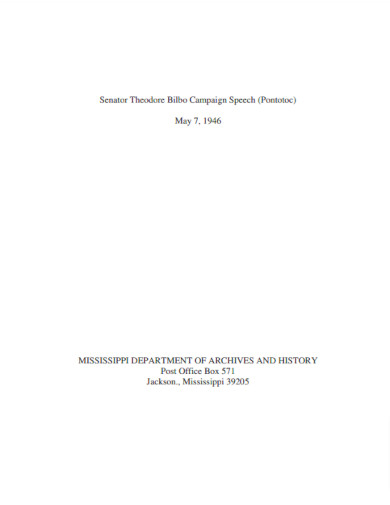
da.mdah.ms.gov
13. Counterfeit Campaign Speech Example
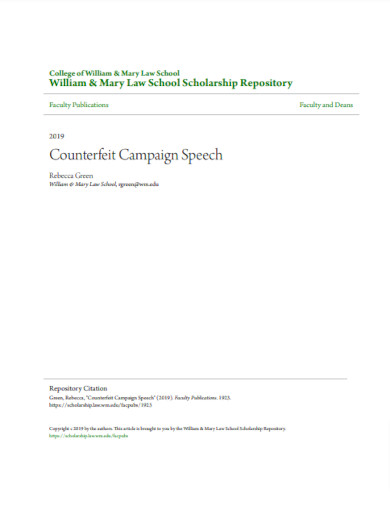
scholarship.law.wm.edu
14. False Campaign Speech and the First Amendment
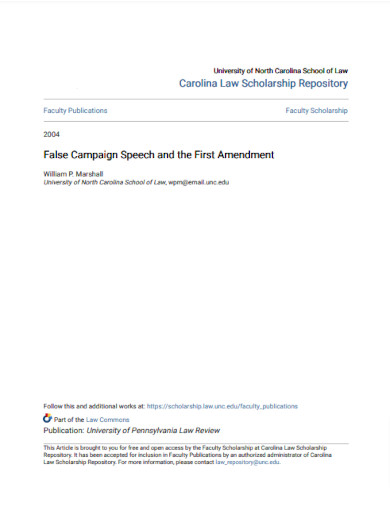
scholarship.law.unc.edu
15. Student Council Candidates Campaign Guidelines
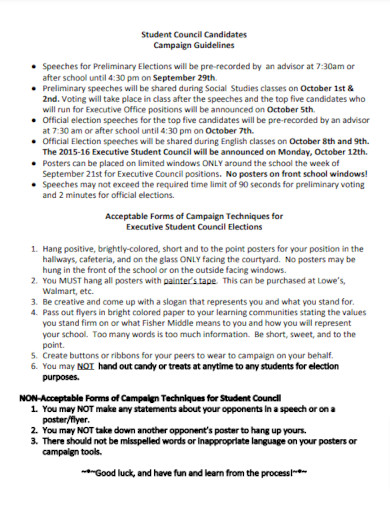
greenville.k12.sc.us
16. School Leader Election Speech
17. School President Election Speech
18. School Campaign Election Speech
19. School Council Election Speech
20. School Vice President Election Speech
What is an Election Speech?
An election speech is a carefully crafted verbal presentation delivered by a candidate seeking public office. It is a formal address that serves as a platform for the candidate to communicate their objectives, values, policy proposals, and vision to the electorate. Through an election speech, candidates aim to connect with voters, gain their support, and influence their decisions in the upcoming election. These speeches are an integral part of political campaigns and play a significant role in shaping public opinion and perceptions of the candidates. The content, tone, and delivery of an election speech are strategically designed to resonate with the audience and leave a lasting impact.
How to draft an Election Speech
Drafting an election speech requires a careful blend of strategy, authenticity, and persuasive techniques. To help you navigate this process successfully, let’s break down the essential steps involved in creating an impactful and memorable election speech.
Step 1: Define Your Objective
Before penning down a single word, it’s crucial to determine your objective for the speech. Are you aiming to introduce yourself to the audience, emphasize your achievements, or outline your policy proposals? Having a clear objective will provide you with a focused direction for the rest of your speech.
Step 2: Understand Your Audience
A compelling election speech is tailored to resonate with your target audience. Conduct thorough research to grasp their concerns, needs, and expectations. This observation will enable you to address their specific issues and demonstrate your commitment to representing their interests.
Step 3: Craft Your Message
Crafting a powerful message involves choosing the right words and verbs that capture your vision succinctly. Keep your sentences simple and avoid jargon that might alienate your listeners. Weave in relevant examples and personal anecdotes to establish a connection and make your speech relatable.
Step 4: Structure and Tone
The way your speech is structured can greatly influence its impact. Begin with a captivating introduction that hooks your audience and clearly states your purpose. Follow with the main body, where you delve into your key points and proposals. Conclude with a strong closing that summarizes your message and leaves a lasting impression. Additionally, pay attention to the tone of your speech – whether it’s inspirational, authoritative, or empathetic – as it sets the emotional tone for your audience.
FAQs
Can I use proper nouns in my election speech?
Yes, using proper nouns can add authenticity to your speech. Mentioning specific people, places, or events can make your message more relatable and grounded.
Should I avoid clichés in my speech?
While some well-worn phrases might resonate, relying too heavily on clichés can make your speech sound insincere. Strive for a balance between familiar expressions and fresh, original language.
Can I use conjunctions in my speech to create more complex sentences?
While conjunctions can connect ideas, it’s best to keep your sentences clear and straightforward. Complex sentences might confuse your audience, so opt for simplicity and clarity.
Election speeches are not merely a formality; they are a crucial platform for candidates to communicate their vision, values, and plans to the public. By following the steps outlined in this guide and considering the tone, context, and elements that make up a successful speech, you can master the art of crafting an effective election speech. Remember, these speeches hold the power to inspire, persuade, and shape the course of a nation, making them an indispensable tool in the democratic process.


